For the past nine years, Eileen Yap, the founder of Singapore Fashion Runway, has poured a five-figure sum monthly into her social enterprise, which nurtures underprivileged youths. She tells CNA Women what keeps her going, despite the many challenges she has faced.
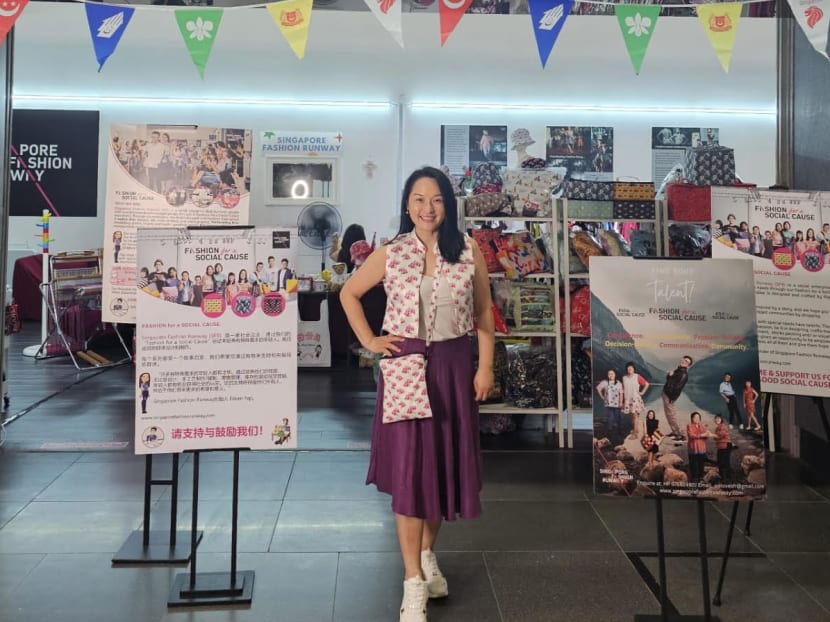
Eileen Yap is the founder of social enterprise Singapore Fashion Runway. (Photo: Eileen Yap)
New: You can now listen to articles.

This audio is generated by an AI tool.
A shop unit tucked inside Marina South Pier MRT station comes to life every afternoon, from Monday to Saturday. Here, groups of eight to 15 young adults with special needs come to learn how to design patterns, sew, model and dance.
At its helm is Eileen Yap, who runs Singapore Fashion Runway (SFR), a social enterprise dedicated to nurturing underprivileged youths in artistic and hard skills, to help them assimilate into society.
Through SFR’s workshops, these youths, aged between 18 and 25 years, are developed in different areas, for instance, in design. SFR turns their artwork into pouches, hats and bags, selling the merchandise at the Marina South Pier shop (#B1-03, 31 Marina Coastal Drive). Some even go on to work on projects and events with the enterprise.
Many of the beneficiaries come from special needs schools like Mountbatten Vocational School, as well as partner organisations such as St Andrew’s Autism Home and MINDS, a social service agency supporting individuals with intellectual disabilities.
Singapore Fashion Runway had its beginnings as a fashion project in 2015 to celebrate Singapore’s 50th birthday. A year later, Yap turned SFR into a social enterprise, combining her passion for fashion with her compassion for people with special needs.
For nine years, it has empowered thousands of special needs and underprivileged youths, including those with autism, Down syndrome, cancer and chronic illnesses.
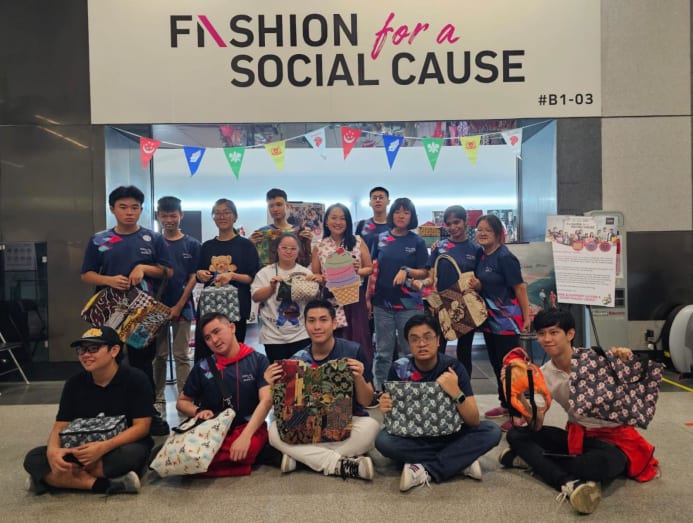 Founder Eileen Yap with her youths from SFR. (Photo: Eileen Yap)
Founder Eileen Yap with her youths from SFR. (Photo: Eileen Yap)
The social enterprise has also expanded its scope beyond fashion-related programmes. It offers workshops in creative arts (arts and crafts, sewing, accessories-making, photography), performing arts (music, dance, modelling, public speaking) and entrepreneurship (communications, life skills, retail management, store management, problem solving).
STARTING SG50 SINGAPORE FASHION RUNWAY
Yap is the founder and designer of the now-defunct local fashion label Noel Caleb, which she started in 2010.
She was fascinated by fashion from a young age. “We live and breathe fashion every day,” the 50-year-old said. “I think being passionate about fashion equates to being interested in life.
“Life, to me, is full of colours, dimension and texture, which you can see through fashion.”
Her brand amassed a loyal following and had pop-up stores at malls like Orchard Central, and department stores like Tangs, Robinsons, Isetan and Takashimaya, she told CNA Women.
At its peak, she hosted many fashion parties, some to launch her new collections, and many bloggers and models would attend.
“Every collection I designed and launched always had a story, and my customers, while trying the clothes, would always want to listen to all my stories,” Yap said.
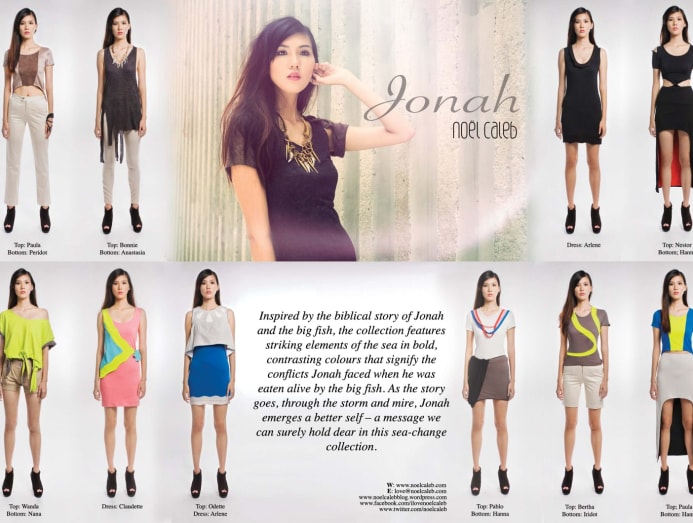 Yap is a fashion designer who founded her own fashion label Noel Caleb in 2010. (Photo: Eileen Yap)
Yap is a fashion designer who founded her own fashion label Noel Caleb in 2010. (Photo: Eileen Yap)
But running Noel Caleb was not all glitz and glamour. By 2014, Yap was beginning to feel the strain, especially as she was also juggling being a mother of three.
“Starting a new brand meant building it up from scratch with zero customers and having to learn about social media, designing, fitting and serving customers,” she said. “Running Noel Caleb was fun, but life was not easy. Managing all these different aspects was very demanding for me and I had to make a lot of sacrifices.”
At the same time, she also wanted to make the fashion industry more accessible to those who were interested in it, giving them the opportunity to express their passion for it.
That was what sparked her 2015 initiative, SG50 Singapore Fashion Runway, where she organised community-led fashion shows to celebrate Singapore’s 50th birthday. It brought together designers, craft-makers, tailors, backstage crews, and models to create fashion projects inspired by Singapore’s past, present, and future.
“We respected every individual’s design and put them all on the stage,” Yap said. “I did this so that anyone who loved fashion could come and design, create and model.”
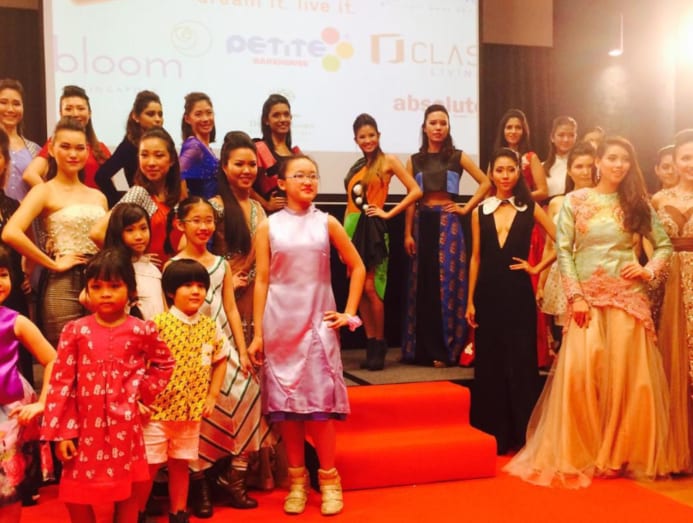 The finale show of SG50 SFR in December 2015. (Photo: Noelcaleb/Instagram)
The finale show of SG50 SFR in December 2015. (Photo: Noelcaleb/Instagram)
The shows drew a lot of attention, and many people signed up to be a part of the initiative.
“Our shows would easily have about 100 models and a few hundred people behind the scenes supporting it. Everyone could come together through fashion,” Yap said.
Within a year, they had hosted eight shows with different concepts, even having one on a rooftop and another in a hotel. In total, more than 10,000 people attended.
FINDING A DEEPER MEANING IN FASHION
Following the SG50 runway shows, two communities wrote to her, each with a unique request.
The first was a group of cancer patients and survivors who sought Yap’s guidance to design their own fashion pieces for the Breast Cancer Foundation’s annual Pink Ribbon Walk, to show solidarity with those affected by breast cancer.
The second was a group of chronically ill children hoping to learn meaningful fashion skills from her.
Moved by their stories, Yap dedicated weekly sessions to both groups for a year, where she learned of their struggles and developed deep compassion for them.
“That was when I realised that there was a deeper meaning to what I do. Despite the challenges or conditions a person may have, fashion can be inclusive,” Yap said.
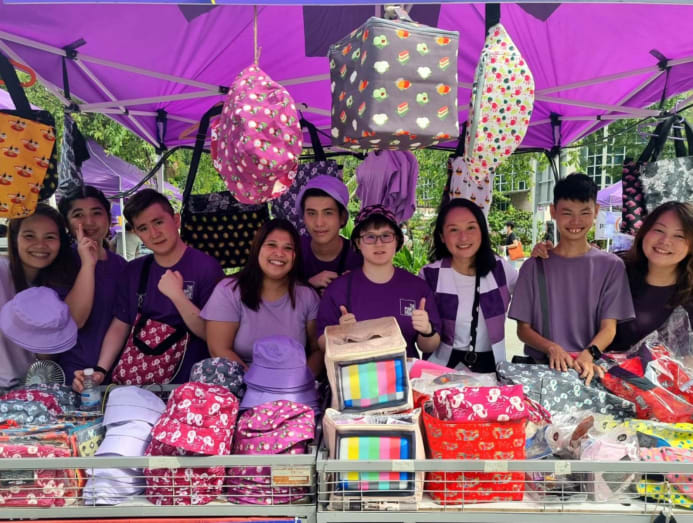 Yap (third from right) with some SFR youths at their pop-up store at Purple Parade 2022, which celebrates the abilities of persons with disabilities. (Photo: Eileen Yap)
Yap (third from right) with some SFR youths at their pop-up store at Purple Parade 2022, which celebrates the abilities of persons with disabilities. (Photo: Eileen Yap)
She was particularly touched by Leah, a cancer patient in the late stages of her illness.
“Every time we met, I would teach her about fashion – colours, textures, design, makeup. And despite her condition, she participated in some of the shows I hosted,” Yap recalled.
“She walked the runway with confidence. The following year, she even asked if she could emcee the shows and catwalk with her son,” Yap said. “No one could tell she was in the final stage of cancer. She had so much positivity despite battling a critical illness.”
THE START OF A SOCIAL ENTERPRISE
Moved by these experiences, Yap decided in 2016 to rebrand SG50 Singapore Fashion Runway to focus on underprivileged groups like cancer patients, as well as chronically ill and special needs youths who were passionate about fashion.
She shuttered Noel Caleb, transforming the brand into Singapore Fashion Runway.
She also launched the Fashion for a Social Cause movement, which showcases models from these underprivileged groups, teaching them fashion-related skills to support SFR’s shows.
“Everyone should be entitled to fashion, in my opinion,” she said. “Seeing their fashion pieces come to life and watching them wear these pieces in their daily lives or on the runway – it makes my mission so much more purposeful.”
But not everyone understood Yap’s shift to become a social enterprise.
“Many people thought the shows used to be so glamorous in 2015,” she said. “But in 2016 when we started including more people with conditions (such as Down syndrome and autism) on stage, it was not easy to explain what inclusive fashion shows were.
“Some people even thought, ‘If I stand next to a patient with a condition on stage, won’t I be mistaken for one too?’” she added, admitting that many of her initial supporters and models from 2015 left.
But that didn’t shake Yap’s resolve – it only made her more certain of Singapore Fashion Runway’s mission.
“We remained focused on the underprivileged groups I wanted to help. And along the way, I found many youths, families, caregivers, partners, and organisations who believed in us and stayed with us till today,” she said.
Yap focused on teaching her beneficiaries fashion skills like sewing, pattern making and apparel design, while still using Singapore as an inspiration for their designs.
“We use the youths' love for Singapore as an anchor for our designs; whether it is a particular food, flora, fauna or place in Singapore that sparks their interest, we lay that story out into the merchandise.”
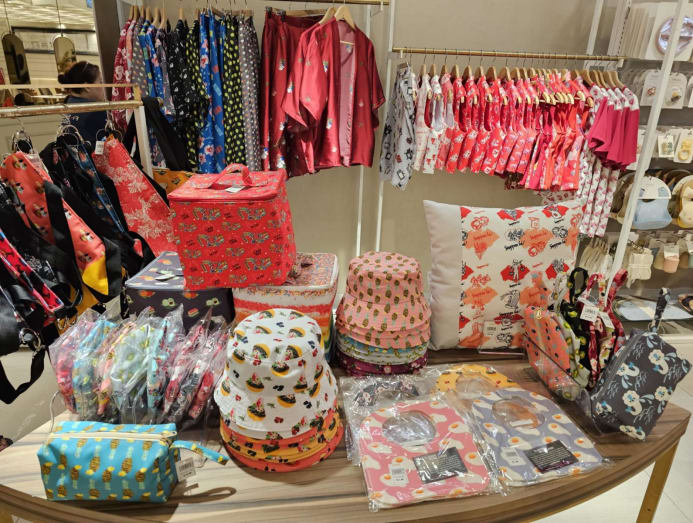 Merchandise with prints designed by the Singapore Fashion Runway youths. Some of the items include a pencil case (S$18), a bucket hat (S$25), a t-shirt (S$39), a kimono vest (S$89), and a dress (S$189). (Photo: Eileen Yap)
Merchandise with prints designed by the Singapore Fashion Runway youths. Some of the items include a pencil case (S$18), a bucket hat (S$25), a t-shirt (S$39), a kimono vest (S$89), and a dress (S$189). (Photo: Eileen Yap)
“People can then enjoy the youths’ talent, and we feel that it’s a very good way to nurture them, help them discover what they like, and make them feel empowered.”
FUNDING FROM HER OWN POCKET
After SFR became a social enterprise in 2016, Yap offered free entry to her fashion shows. That meant that most of the funding for the social enterprise had to come from her own pocket.
Each month, Yap forked out more than S$15,000.
“It is like having a child, and if the child needs support, I am the parent who gives,” Yap said, laughing.
“And when you give money to your child, you don’t expect them to pay it back. But of course, you try to train them to grow their talent and become independent over time.”
As the number of SFR beneficiaries increased, she realised she needed a sustainable way to support it.
“I had to seriously consider the business aspect in order to survive and to impact more youths in the last five years, especially since we want to nurture and eventually hire them,” she said.
Yap decided to return to retail. She began taking clothing samples from the shows and started a production line to sell them.
“We started by teaching the youths how to cut fabric for a drawstring pouch. When COVID-19 hit, we then got them to sew masks,” Yap recalled. “After COVID-19, we started to make a range of merchandise with the designs and prints the youths made.”
But even with merchandising, Yap was still running at a loss. Any income generated from sales was channelled back into the social enterprise.
Currently, she still puts in between S$10,000 and S$15,000 a month to support SFR.
“Fundraising is always very challenging,” Yap said. “As a social enterprise, we’re not like a charity; no money comes to us, so we have to find ways to make ends meet.”
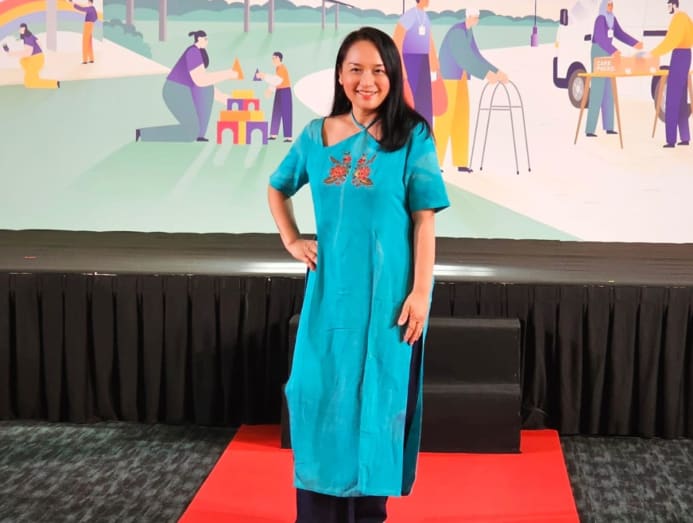 Yap on stage at the Temasek Foundation Oscar Event in 2024. SFR showcased a sustainable collection called Le Echo Chic, with clothes made from pineapple leaves that were made into yarn, then into fabric and clothes. (Photo: Eileen Yap)
Yap on stage at the Temasek Foundation Oscar Event in 2024. SFR showcased a sustainable collection called Le Echo Chic, with clothes made from pineapple leaves that were made into yarn, then into fabric and clothes. (Photo: Eileen Yap)
“I care about the youths and want to bless them, so I just throw in more funds. The more we train them, the more we feel that they can be hired and earn a living. That is our ultimate goal,” she said, citing her Christian faith as the biggest motivation for her doing so.
But with the help of corporate partners, whom she describes as the SFR’s “biggest supporters”, she has been able to lower its losses each year.
“Most fashion shows we do now are commissioned by our partners. For instance, instead of roping in a singer, they ask us to host a fashion show segment during their events or dinners,” Yap explained.
“We also plan workshops, events, or handle fashion designing and merchandise development for organisations, helping them create creative gift ideas for their staff,” Yap said. Some of her partners include CPF Board, MUFG Bank and the Singapore Business Federation.
In the last few years, SFR has also been working with Singapore Airlines’ KrisShop to upcycle the flight crew’s uniforms into zip pouches, she added.
Yap also got to know of her beneficiaries' other passion – food. So, in 2021, SFR launched the Food for a Social Cause movement to teach the youths skills, from food preparation to customer service and store management through F&B-centred workshops.
Today, they also curate menus to provide catering to their corporate partners.
“It helps that the youths in SFR are very versatile. It’s in their DNA to be able to adapt to change and switch between fashion and food and marry the two effortlessly. It is very precious to us.”
Yap does not draw a salary from SFR. To make ends meet, she teaches at Mountbatten Vocational School, which provides vocational training to youths with disabilities leading up to their ITE certification. She is also an adjunct lecturer at Temasek Polytechnic, teaching marketing.
She teaches three days a week and visits the shop two or three times a week to monitor the youths’ progress with the co-trainers and discuss upcoming projects.
THE SMALL MILESTONES KEEP HER GOING
Despite the many challenges running SFR, it’s celebrating the small milestones each day, seeing her youths make progress, that drives her to continue building the social enterprise.
“It could be a youth who initially couldn’t take the train but has now gained independence and can come to our headquarters on their own. That eases the burden on the family too,” she said.
“To someone like you and me, it is a very small milestone: Getting ready to go out, taking a bus or train, meeting people. But to a person with special needs, every single step can be challenging and daunting.”
She told CNA Women about Low Vuitton, 21, who has autism.
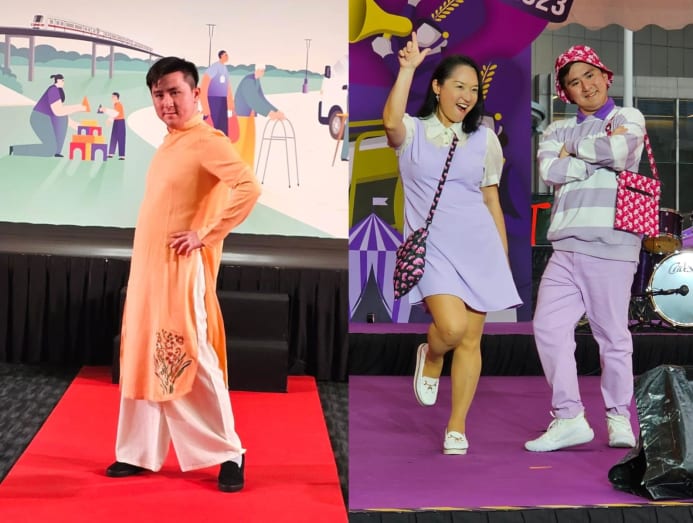 Low Vuitton, 21, who has autism and left his special needs school to join SFR. (Photo: Eileen Yap)
Low Vuitton, 21, who has autism and left his special needs school to join SFR. (Photo: Eileen Yap)
Yap met him in 2020 when he was 17 and won Singapore Fashion Runway’s Singapore’s Next Top Inclusive Model Hunt.
“He struck us as someone who was not only very confident in himself … interestingly, when we asked him to help coach other youths, he was able to do it,” Yap said.
The team also realised that he had a very good memory and strong arithmetic skills. “He could count stock and do transactions,” she added.
After months of training, Low is now the manager of the SFR store, the first special needs youth the social enterprise has hired. He is also the lead for any pop-up stores SFR has.
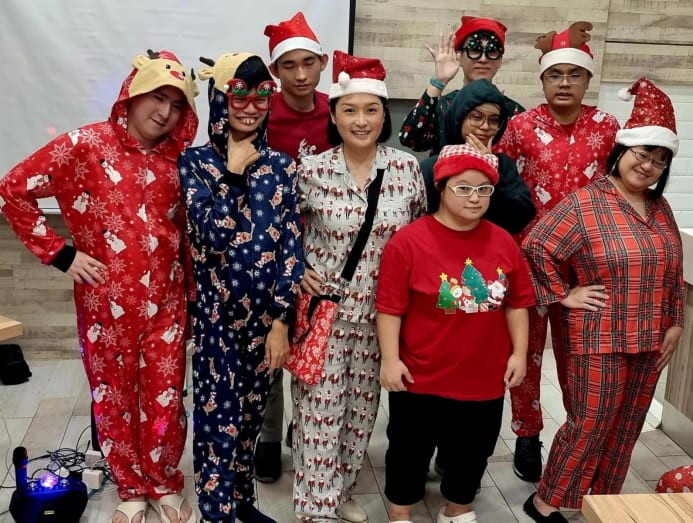 Yap (in white) with her SFR youths at a pyjama fashion party she hosted at Christmas in 2022. (Photo: Eileen Yap)
Yap (in white) with her SFR youths at a pyjama fashion party she hosted at Christmas in 2022. (Photo: Eileen Yap)
In 2023, Yap launched the Stay for a Social Cause movement, offering underprivileged youths the opportunity to travel with their friends. Since then, she has taken them to Japan and Malaysia.
Yap said she hopes to give educational talks to more schools and organisations to showcase the talents of Singapore Fashion Runway’s youths.
“Nurturing special needs youths is a lifetime commitment for me,” she said. “While others may shun them, I see their potential, their will to succeed, and that’s more than enough for me to grow and nurture them.”
CNA Women is a section on CNA Lifestyle that seeks to inform, empower and inspire the modern woman. If you have women-related news, issues and ideas to share with us, email CNAWomen [at] mediacorp.com.sg.


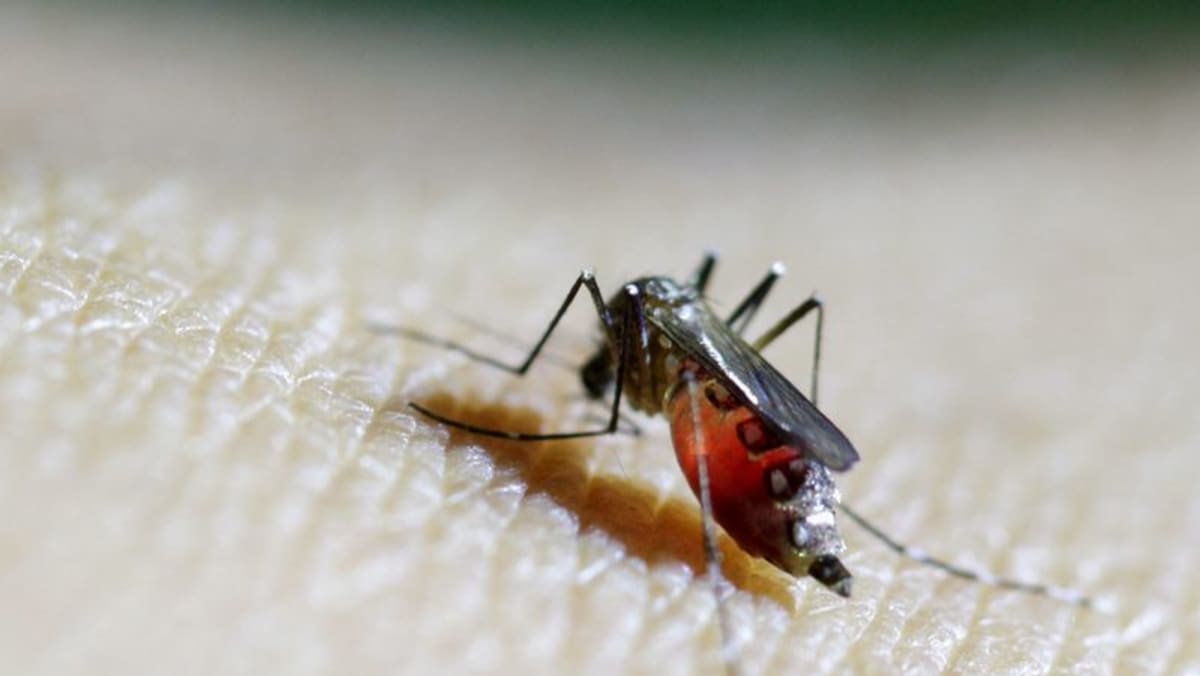


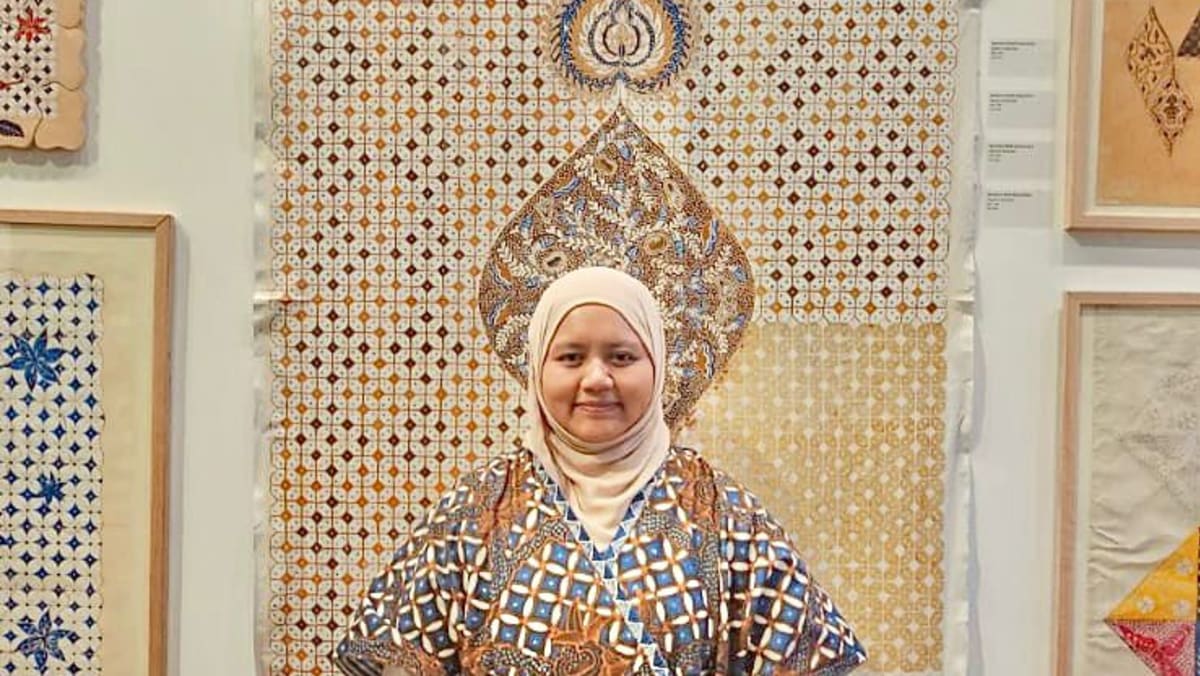
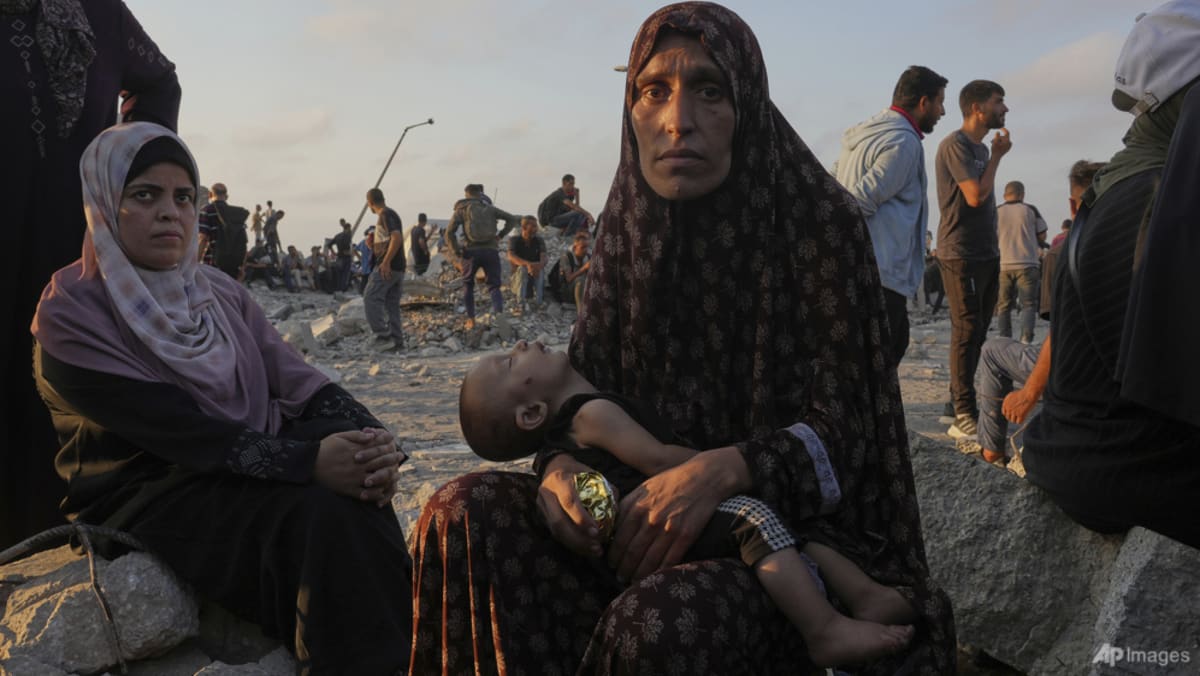

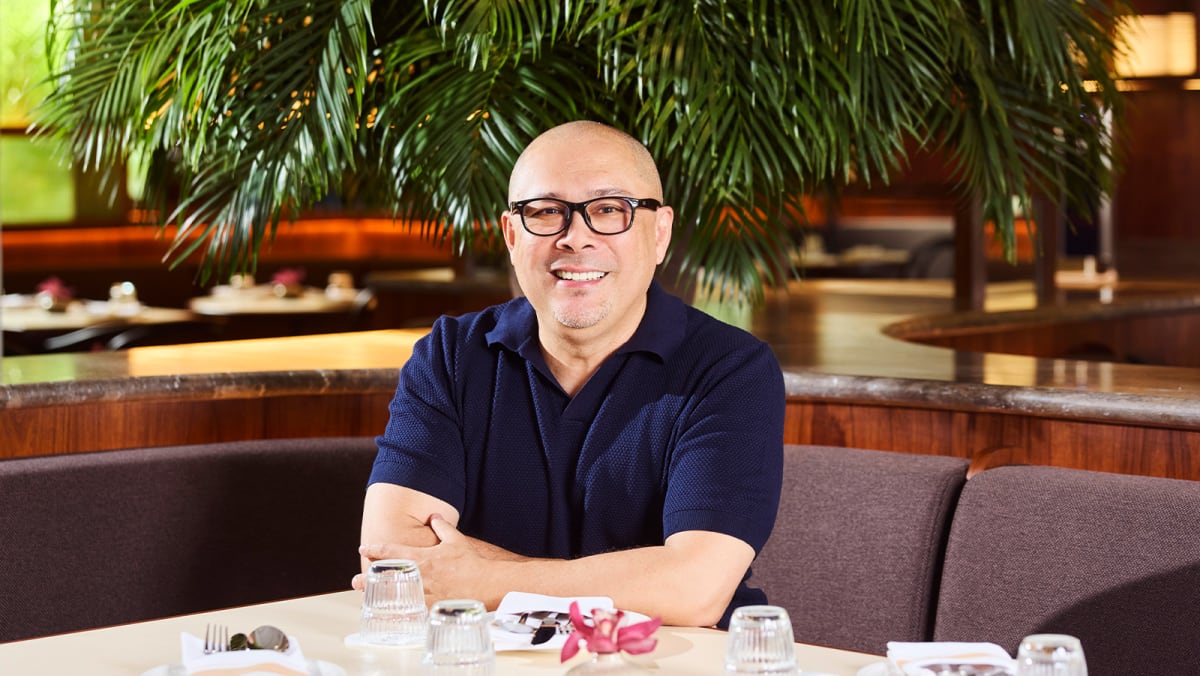
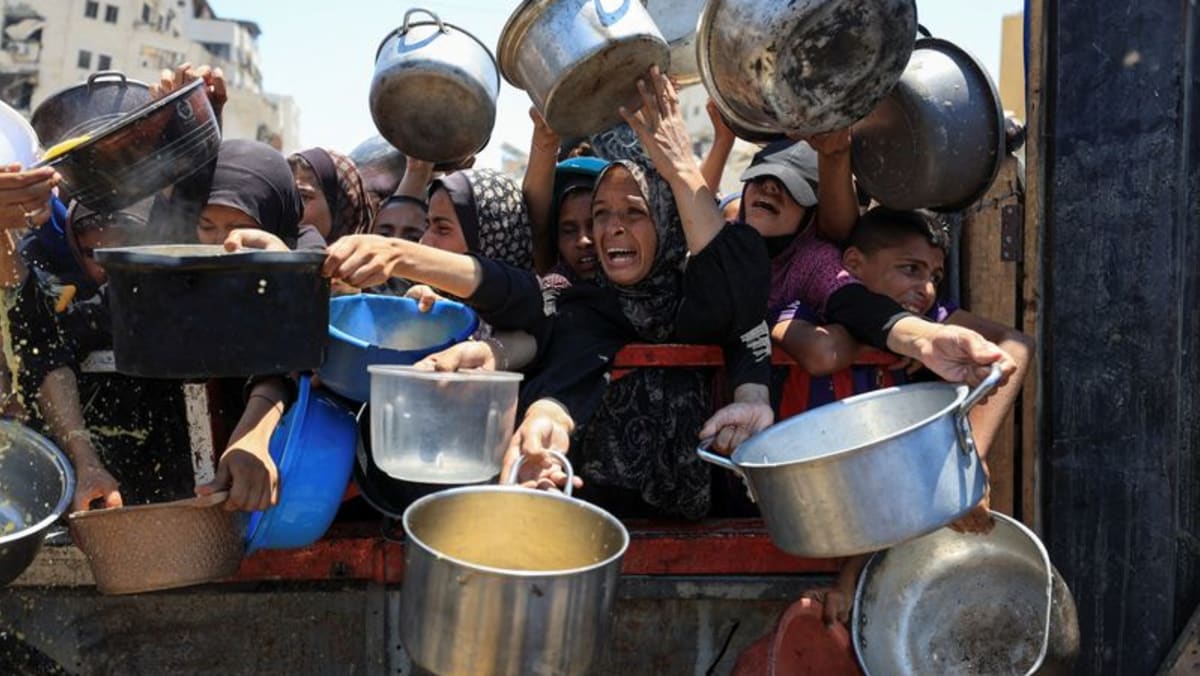




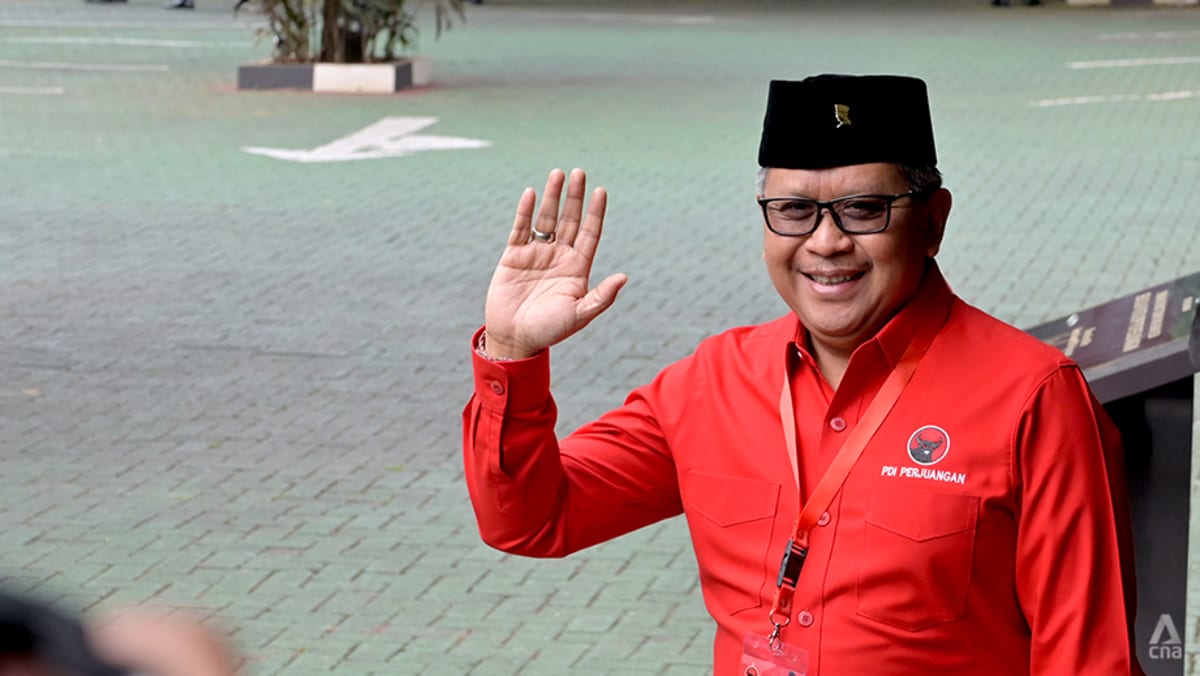
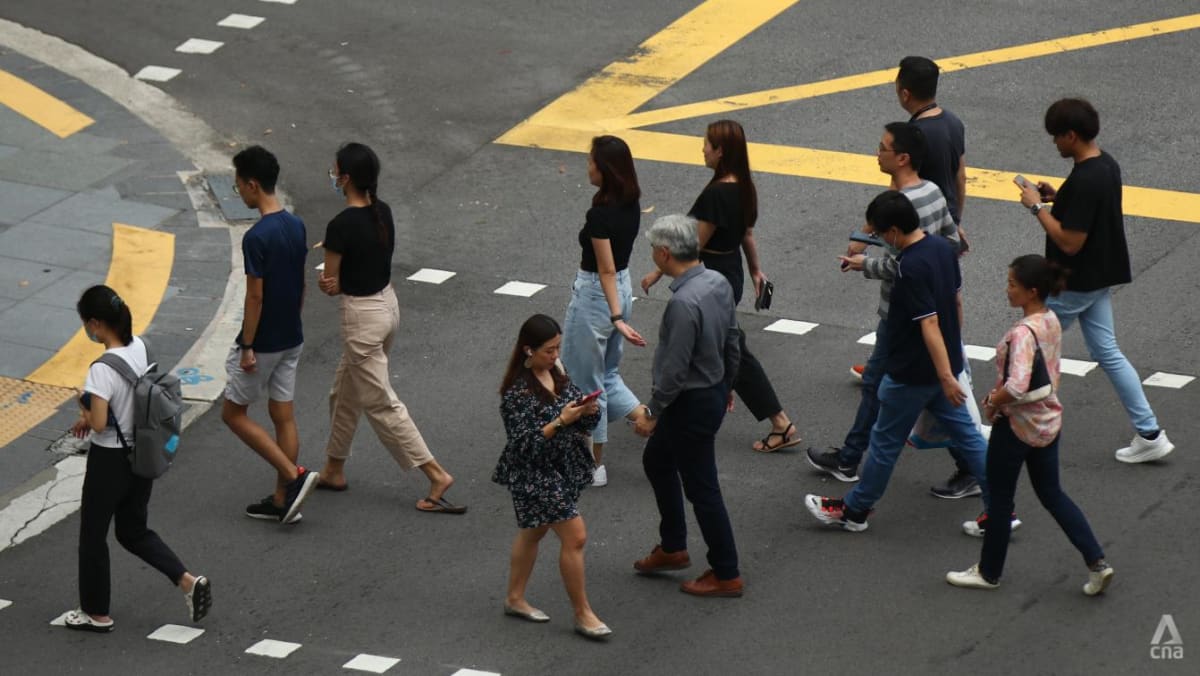
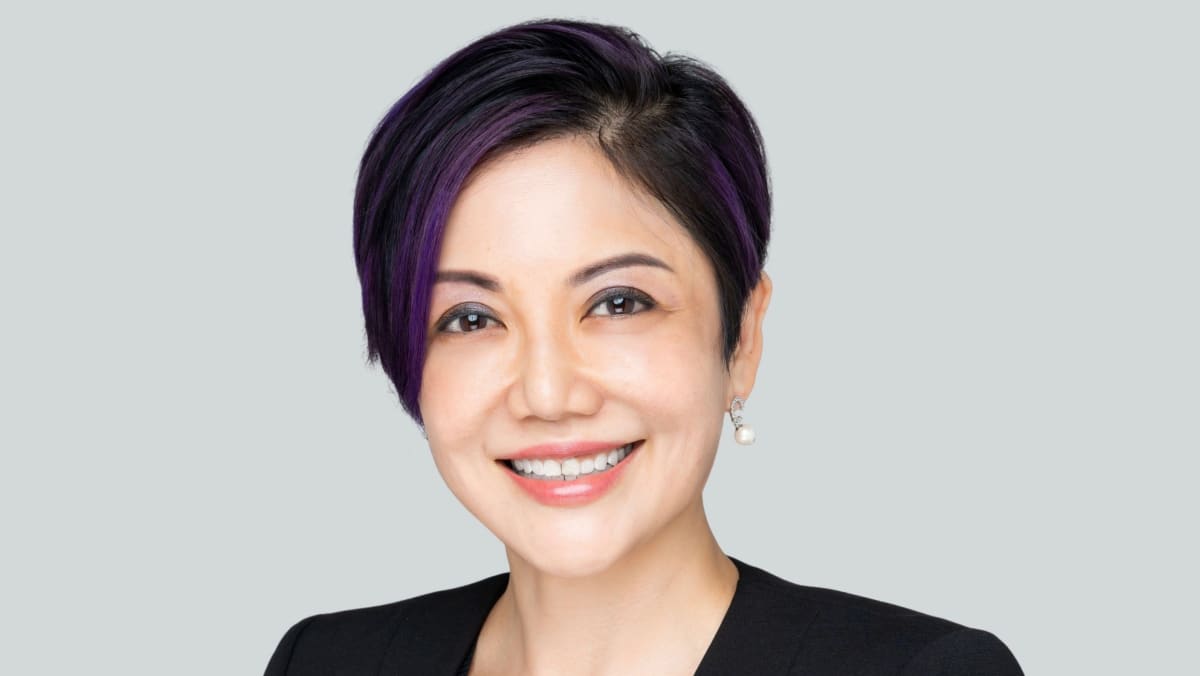


















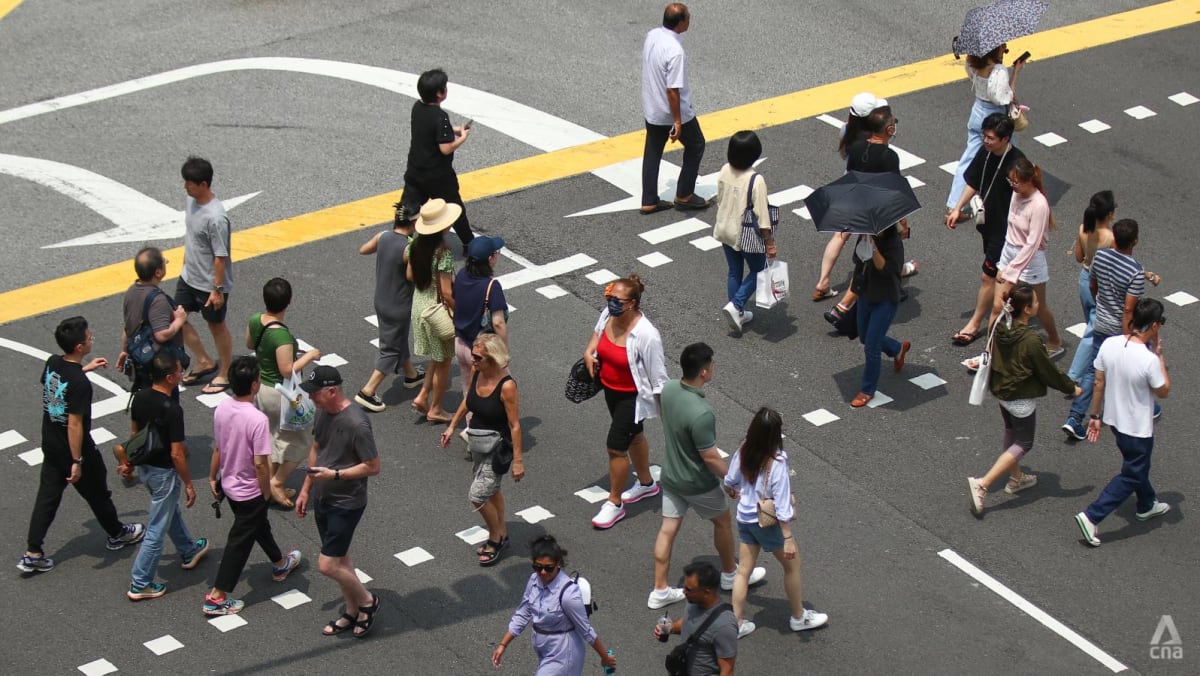






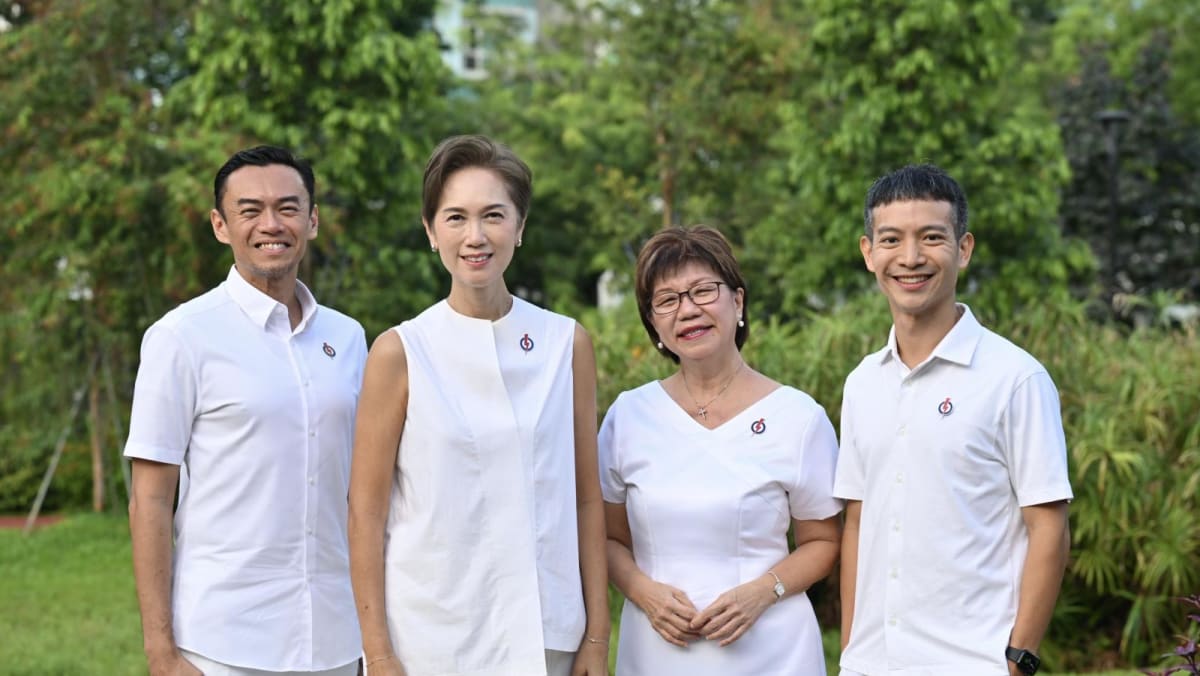



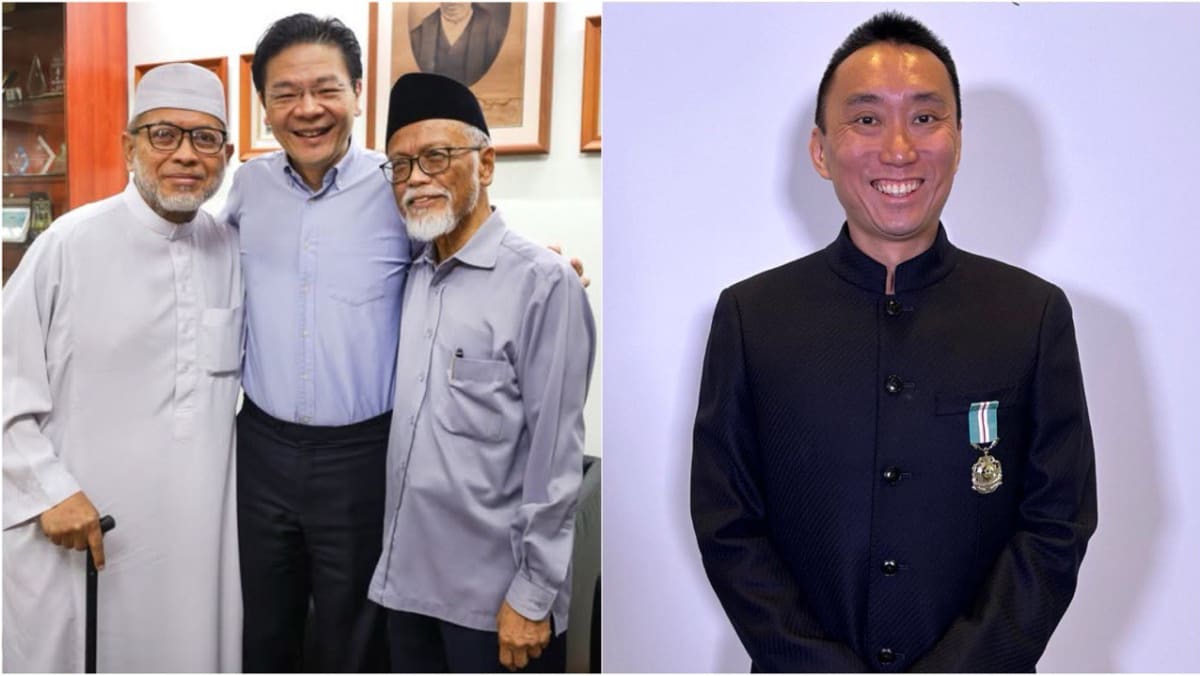
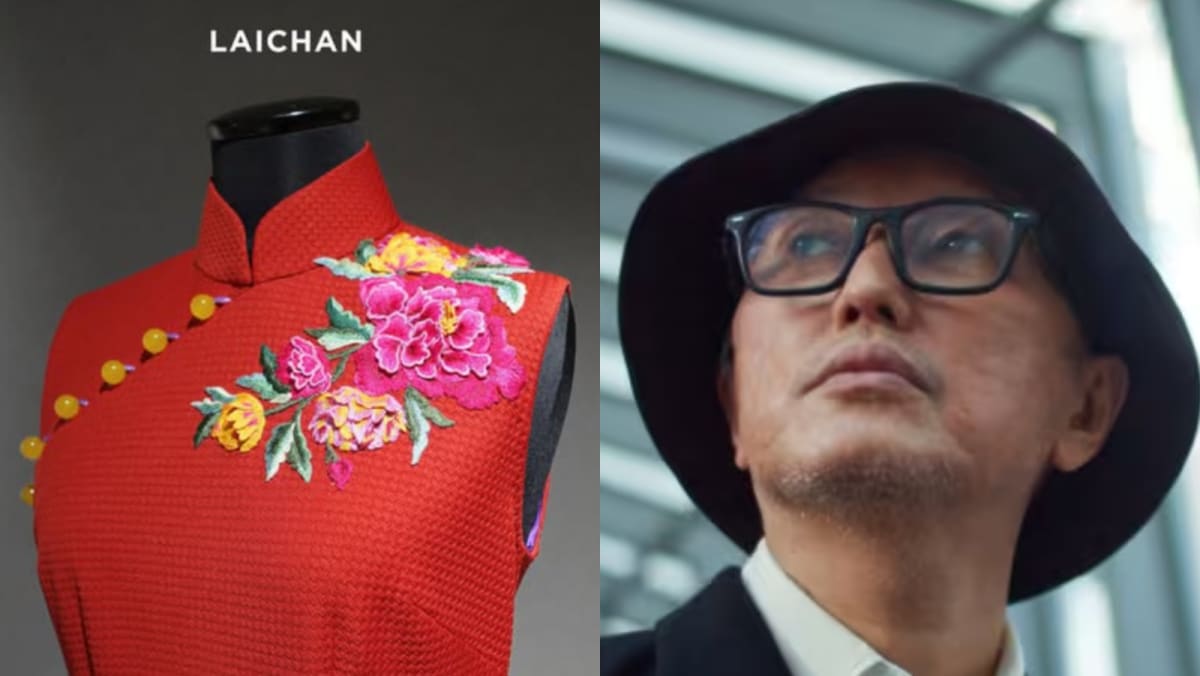

.png?itok=erLSagvf)

